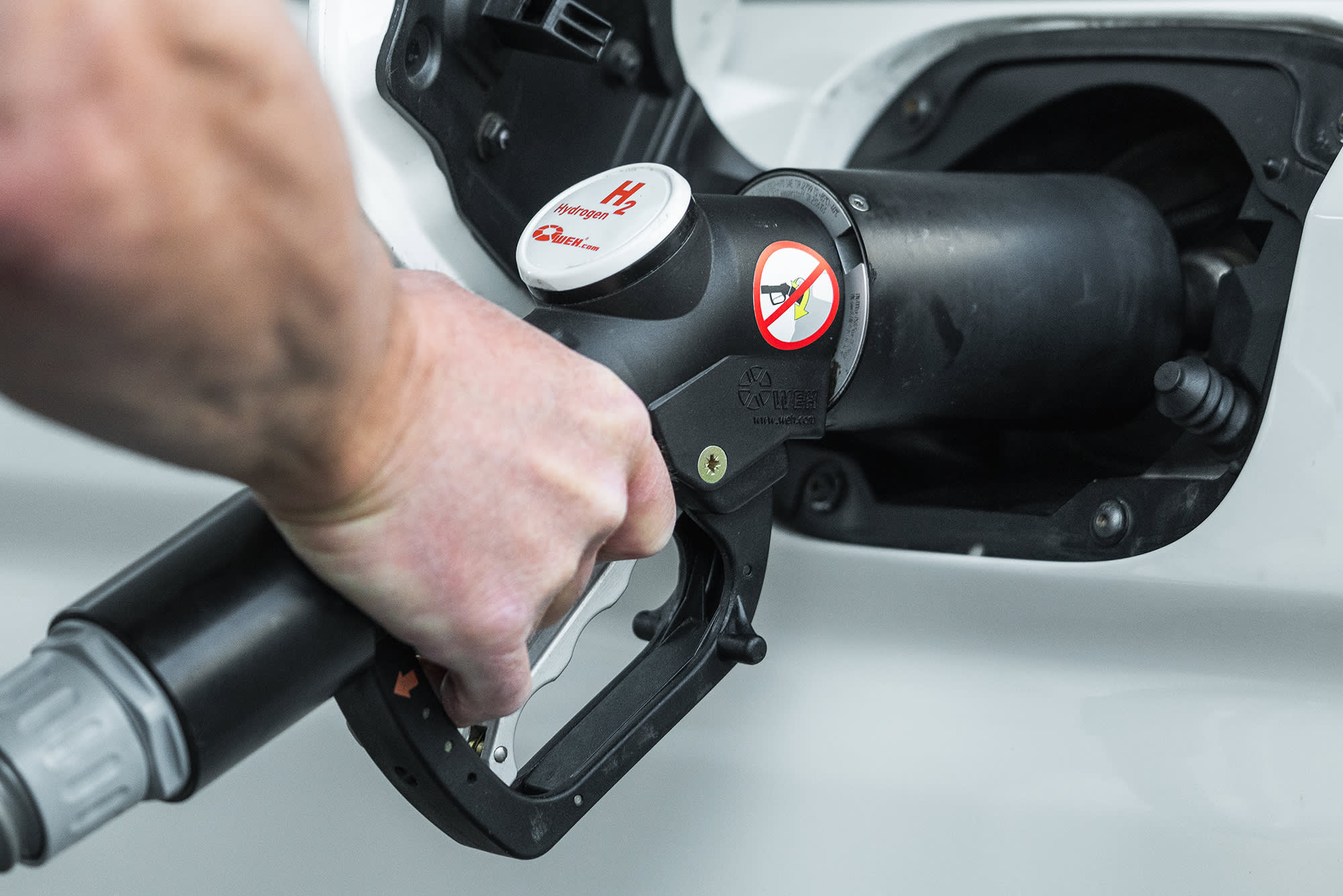Nikola shares surge on hydrogen fuel station plans and battery truck production

Nikola Motor Company Hydrogen fuel
Source: Nikola Motor Company
Shares of embattled electric truck manufacturer Nikola surged during early trading Thursday after the company reconfirmed production targets and announced a limited collaboration on hydrogen fueling stations with TravelCenters of America.
The plans include installing hydrogen fueling stations for heavy-duty trucks at two sites in California for TravelCenters of America, which is the largest publicly traded company that runs full-service travel centers in the U.S. The initial stations are “a first step for the parties to explore the mutual development of a nationwide network,” according to Nikola.
Shares of Nikola seesawed in Thursday morning trading, soaring by more than 21% after board member Jeffrey Ubben told CNBC the company is “pretty much on target” regarding its production plans.
Most notably, customer production of its first semitruck, a battery-electric vehicle called the Nikola Tre, beginning in Europe in the fourth quarter, followed by a plant in Arizona coming online to produce the vehicle in 2022.
“We’re checking boxes,” he said during CNBC’s “Squawk on the Street.” “There’s tremendous momentum here. The team is head-down here. That’s all I can say.”
Nikola stock was trading at at $12.20 a share as of 10:55 a.m., up about 18%. The shares, which once traded as high as $93.99, fell below $10 earlier in the week for the first time since the company went public through a reverse merger with a special purpose acquisition company, or SPAC, in June. Nikola, which was briefly valued higher than Ford Motor last year, now has a market value of less than $4 billion.
The collaboration between Nikola and TravelCenters of America is subject to negotiations and execution of a definitive deal agreed upon by both companies, according to a press release.
“The key here really is to have this integrated solution,” Ubben said. “The hydrogen stations and the fuel-cell truck.”
Hydrogen fuel-cell electric vehicles are viewed as a long-range solution for the trucking industry, which is attempting to move away from diesel-powered trucks. They operate much like battery-electric vehicles but are powered by electricity generated from hydrogen and oxygen instead of pure batteries.
FCEVs also are quicker to fuel than battery-electric vehicles, which the automotive and trucking industries also are exploring for shorter trips. But they also feature many of the same hurdles such as higher costs and charging/fueling infrastructure.
In a separate vote of confidence for hydrogen fuel cell technology, global auto supplier Bosch announced plans Thursday to invest 1 billion euros ($1.2 billion) in the technology through 2024. The German-based company believes the market for hydrogen in Europe will be worth almost 40 billion euros ($48.2 billion) by 2030 – with annual growth rates of 65%.




